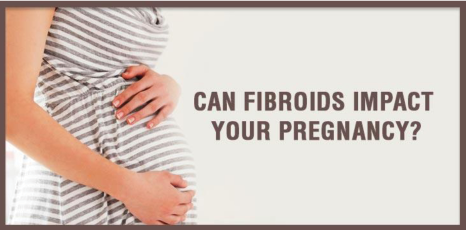
Can Fibroids Impact Your Pregnancy?
There are various circumstances which can play a role in transforming your ability to get pregnant and deliver a healthy baby. One possible factor which influences about thirty to fifty percent of women is uterine fibroids. They are a normal condition and often run in races. If the mother had fibroids, there’s a big chance that the daughter might have them, too.
What Are Fibroids?
Defining about Uterine fibroids, they are non-cancerous tumors which may occur
in the muscle tissue of the uterus. Women normally have more than one fibroid
and they differ in their size and location. You can describe their size by the size of
the fruit especially that of grapefruit.
Depending on their size and the capacity they can alter both the size and shape of
the uterus and affect the cervix. It is the size and location that impact your
symptoms and the need for treatment.
Types Of Fibroid
Three principal types of fibroids which differ based on wherever they are found. The subserosal fibroids are seen in the outer wall of the uterus (55%) whereas the Intramural fibroid is located in the muscular layers of the uterine wall (40%) and submucosal fibroid type in the uterine cavity (5%).
Studies On Fibroid
There are different investigation and analysis carried out on Fibroids but its still unclear why fibroids are formed. Different factors like genetics, hormones, and environmental factors obviously play a key role in this fertility episode. The most obvious way a doctor will decide whether you have fibroids is when he is assessing their size, number and location is through a physical exam and ultrasound. In some instances, additional imaging examinations such as an MRI may be required.
How The Size Of Fibroids Impacts Infertility?
It’s a complicated issue. Surveys suggest that about 5-10% of women enduring
infertility have fibroids and the minimum concern is their size and location which
may create obstacles. Fibroids that are extremely wide i.e. greater than 6
centimeters in diameter are those placed inside the uterine cavity are examples
of cases where fibroids may influence the ability to get pregnant and produce a
healthy baby.
In most of the Studies, it has been revealed that only submucosal fibroids which
point into the uterus may influence fertility. There are exemptions including large
fibroids that may block the openings of fallopian tubes into the uterus.
There are even women who have fibroids but they do not face infertility
problems. The fertility specialist can assess whether fibroids may be an issue and
whether any treatment is needed.
Fibroids Can Impact Fertility In Different Ways
Uterine fibroids can influence the fertility chapter in diverse ways based on how
their size and location varies the shape of uterus, cervix or fallopian tubes. There
could be various instances wherein fibroids could be the cause of infertility. For
example, when the fallopian tubes get blocked by fibroids it makes it challenging
or impossible for a fertilized egg to implant. There are even cases wherein thechanges in the shape of the cervix can affect the amount of sperm that can enter
the uterus.
Moreover, it has also been observed that the Fibroids can impact the breadth of
the uterine lining. Even when the blood flow to the uterine cavity it could be
impacted. This can reduce the capacity of an embryo to implant in the uterine
wall or develop.
Leave commemt
Recent Post
attempting to conceive a child
ICSI (intracytoplasmic sperm injection) treatments,
Recent Post
attempting to conceive a child
ICSI (intracytoplasmic sperm injection) treatments,
